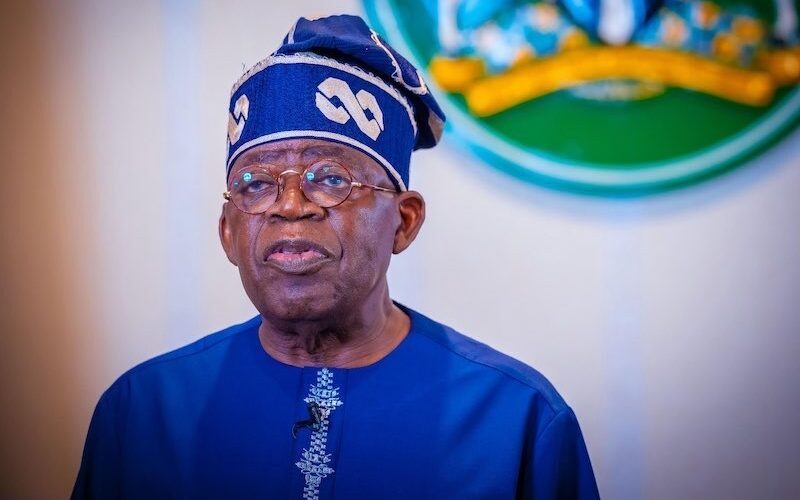* Optimistic about planting 20bn trees through the arrangement
* OSC to build South-South technology centre in Africa as Shettima lauds Tinubu’s leadership
Deji Elumoye in Abuja
The Federal Government of Nigeria has initiated the signing of a Memorandum of Understanding (MoU) with a consortium comprising the Dalberg Group and Campo Group.
The move, which is in pursuance of Nigeria’s Green Legacy Programme, is coming just as the Organisation of Southern Cooperation (OSC) has chosen Nigeria as the site to build its first-ever South-South Technology Transfer Centre for Africa just has also proposed for Nigeria to host its African South-South Summit.
This was made public on Monday during a meeting between Vice-President Kashim Shettima and the consortium comprising the Dalberg Group and Campo Group, which navigated Ethiopia’s 46 billion tree planting success, on the sidelines of the ongoing United Nations Food Systems Summit in Addis Ababa, Ethiopia.
Shettima, according to a release issued by his Media Assistant, Stanley Nkwocha,
said: “We have very tall and ambitious projects here, and where there is a will, there is always a way. But experience is not something you buy in the market square. You have to have it, and you have to earn it by supporting the Ethiopian government to succeed.
“We are optimistic about the 20 billion trees. If Ethiopia, a hilly country made up of highlands and mountains, can succeed in planting 46 billion trees, then I believe our 25 billion is even a modest figure. So, I want us to start planting up to 10 billion trees.”
Reiterating Nigeria’s commitment to the green revolution initiative, the vice-president described President Bola Tinubu as a transformational leader bent on redefining the meaning and concept of leadership in Africa.
Shettima said President Tinubu remains the most courageous leader in the contemporary history of Nigeria who is willing to take risks and make far-reaching decisions to transform the Nigerian economy.
Meanwhile, the OSC has sought the support of the Nigerian government to establish the South-South Technology Transfer Centres, designed to facilitate exchanges of technologies among its member states.
This, the organisation said, is very deserving of Nigeria, given the renewed leadership and educational strides of President Tinubu.
The leadership of the organisation made the request on Monday when Vice-President Shettima played host to its Secretary General, Mr Manssour Bin Mussallam, on the sidelines of the ongoing United Nations Food Systems Summit in Addis Ababa, Ethiopia.
Shettima urged the OSC to look inward and come up with ingenious solutions to the developmental challenges among its member states, noting that the South constitutes more than 70 per cent of the global population.
“Part of the reason why I was eager to meet with you has to do with the core mandate of the Organisation of Southern Cooperation, which is to build a balanced and inclusive education system. And in this age of economic nationalism, the South needs to look inward to come up with ingenious solutions towards addressing developmental challenges among its member states.
“If you add China and India as part of the global south, we constitute a chunk of the global solution. For me and my boss (President Tinubu), we are very passionate about education. Africa missed the agricultural age; we missed the industrial age. We are now in the knowledge-driven post-industrial age and post-industrial revolution.
“People are talking of Artificial Intelligence, biotechnology, and we are in a unique position to take advantage of these opportunities,” he said.
Earlier, the Secretary General of OSC, Mussallam, expressed gratitude to the government and people of Nigeria for their visionary decision to become a founding member state of the OSC and one of the first countries to ratify its charter.
He also sought the support of President Tinubu and Vice-President Shettima to reinforce cooperation with Nigeria in ensuring that the country benefits more from its membership in the OSC family.
His words: “Your Excellency, as you are aware, the Organisation of Southern Cooperation is relatively new among government organisations. We were born in January 2020 with the conviction that it was necessary for us to finally have an organisation that is our own, with an executive capacity that enables South-South Cooperation.
“And in this regard, the Secretariat, on the direction of the General Assembly, has for the upcoming two years, set up a programme founded upon six pillars: building knowledge-powered societies which, of course, includes several flagship initiatives, including the establishment of a Southern Research and Innovation and Application Fund that will bridge the funding gaps.”
The secretary general added that one of the key projects the organisation plans to execute in the next three years is the establishment of the South-South Technology Transfer Centres, designed to facilitate exchanges in technologies on the continent.
“We believe that Nigeria will be particularly well-suited given its leadership in that field, and its vision under your government to host the African centre alongside the Latin America and Southeast Asia representatives,” he said.
The post Nigeria To Sign MoU With Consortium On Green Legacy Programme appeared first on THISDAYLIVE.


